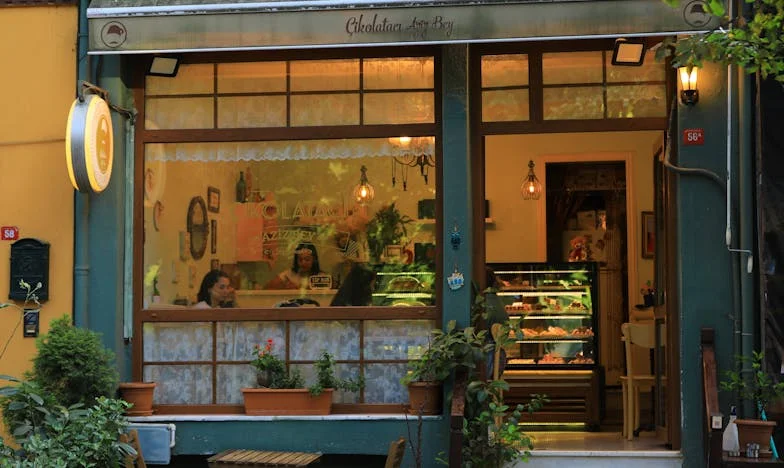How My Open-Door Policy Nearly Broke My Family (And How I Fought Back)
“You’re joking, right? You didn’t even text?” I snapped, standing in my own kitchen, spatula still in hand. My cousin Mike, wearing a Reds cap and holding a six-pack of cheap beer, just shrugged. Behind him, my aunt and two other cousins were already making themselves comfortable in the backyard, popping open sodas and eyeing the grill. It was 2 p.m. on a Saturday and I hadn’t even finished prepping the ribs.
This was the third weekend in a row. Ever since I moved to this house in Westerville, just outside Columbus, everyone had said I was the life of the party. Maybe it started with the July 4th bash two years ago—that one was huge, and I’d been proud. My secret BBQ sauce (which, let’s be honest, I borrowed from an old construction buddy in Cleveland) was legendary among friends and neighbors. But somewhere along the way, my generosity turned into obligation.
Sarah, my wife, had warned me. “Steve, you’re too nice. If you keep making it easy for them, they’ll never stop.” She was right, and not just about my family. Even our neighbors had started dropping hints about ‘how great it would be if you did another cookout this weekend.’
But it was my family that pushed me over the edge.
That Saturday, my patience finally snapped. The kids—my own and my cousins’—raced through the house, tracking mud on Sarah’s new rug. My uncle Tom, who I hadn’t seen since Easter, strolled in and poured himself a bourbon without asking. My aunt Linda cornered Sarah in the kitchen, criticizing her potato salad and hinting she should try Linda’s recipe next time.
Later, as I stood over the grill, Mike sidled up next to me. “You got any more of that bourbon, man?”
I bit my tongue. “Yeah. Bottom shelf.”
“Hey, you know, these cookouts are the highlight of our summer. You’re a real hero, Steve.” He slapped me on the back. “We’ll just keep this tradition going, right?”
I forced a smile, but inside, something cracked. Tradition? This wasn’t tradition. This was a weekly invasion.
Sarah found me later at the sink, scrubbing grease off a pan like I was trying to erase the whole afternoon. “We need to talk,” she said quietly. “This isn’t working for us.”
I knew she was right. Our weekends were supposed to be for us and the kids, not a never-ending parade of freeloading relatives. But I dreaded the confrontation.
That night, after everyone had finally left—leaving behind empty plates and a mountain of trash—I sat at the table, head in my hands. My phone buzzed: a text from my cousin Jenny. “Thanks for having us! Same time next week? ;)”
I snapped. I couldn’t do this anymore.
The next morning, I called my dad. He’d always been the peacemaker in our family, but I needed advice. “Dad, am I being a jerk if I say no to everyone?”
He chuckled. “Son, there’s a difference between being generous and being a doormat. You want people here, or do you just feel you have to?”
“I want to enjoy my own home. I want to have people over sometimes, but on my terms. I feel…used.”
“Then you need to set some boundaries. It’s your house.”
It sounded so simple, but I knew it would be anything but.
That Monday, I sent a group text to the family. My hands shook as I typed:
“Hey everyone—Sarah and I love having you over, but we need to start planning get-togethers in advance. Please check with us before dropping by. We need some weekends to ourselves. Thanks for understanding.”
The responses rolled in. Jenny replied with a thumbs-up. Mike sent a “lol no worries.” Aunt Linda didn’t reply at all.
But then came the phone calls. My mom was first—hurt that I was “shutting out my own family.” Uncle Tom accused me of “letting Sarah wear the pants.” Even my brother Matt, who rarely visited, called to say I was “making a big deal out of nothing.”
Sarah supported me, but the guilt gnawed at me. Did I really want to be the guy who broke up family traditions?
The next weekend was eerily quiet. No one showed up. The kids were bored without their cousins. I worried I’d overreacted.
But something unexpected happened: we had a peaceful afternoon. I watched my son, Ethan, chase the dog around the yard. Sarah read a book on the porch. I grilled burgers just for us, and for the first time all summer, I actually tasted the food.
A few weeks later, my cousin Jenny asked if we could plan a Labor Day BBQ. She offered to bring sides and help with cleanup. That was new.
The family didn’t stop being family. But they started calling first. Sometimes I said yes, sometimes no. The world didn’t end. I realized my hospitality had value—and so did my boundaries.
Sarah squeezed my hand one night as we watched the sun set behind our backyard fence. “You did the right thing, Steve.”
Did I? I still wonder. When does hospitality turn into self-sacrifice? How do you say no to family without losing them—or yourself?
